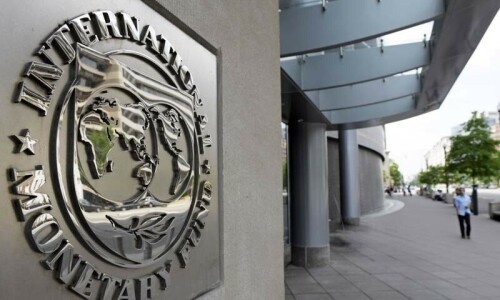THE government appears to be on some sort of mission to create regulatory bodies and introduce amendments to laws.
Its recent plan to bring changes to Peca 2016, including the establishment of a new Digital Rights Protection Authority, shows how the state continues to prioritise control over real cybersecurity concerns. There is no mistaking it. It is simply another attempt to suffocate dissent. This is not the first time Peca has been weaponised against free speech.
Since its inception in 2016, the law has faced persistent criticism from journalists, CSOs, and digital rights advocates for its vague provisions that enable state overreach. The 2022 Peca ordinance, later struck down by the Islamabad High Court, had similarly attempted to criminalise criticism of public officials. Now, we see history repeating itself with even more draconian measures.
The proposed amendments are particularly troubling in their expansive definition of ‘social media platforms’ to include tools used to access such platforms. With the government without a legal cover to block VPNs, it is a not-so-thinly veiled attempt to regulate them. And while misinformation is a real issue, its vague definition under the proposed law raises critical concerns. What qualifies as ‘fake or false information’? Who decides its authenticity?
This, coupled with ‘fake news’ carrying five-year imprisonment terms, creates an environment of fear and self-censorship. The irony should not be lost on anyone: as traditional media faces increasing curbs and economic pressures, citizens naturally turn to social media for information and expression. Instead of addressing the root causes of misinformation by fostering media literacy and protecting press freedom, the state’s response is to create yet another regulatory body with sweeping powers to block content and prosecute citizens.
The creation of DRPA, following the uncertain fate of the recently established National Cyber Crime & Investigation Authority, reflects a bureaucratic tendency to multiply institutions rather than strengthen existing ones. The NCCIA, formed just months ago to replace the FIA’s Cybercrime Wing, already appears to be in limbo with its governing rules repealed. This pattern of creating overlapping bodies while failing to address fundamental issues of digital rights and cybersecurity does not inspire confidence.
The state must realise: the more it clamps down on legitimate discourse, the more it fosters a climate of rumour-mongering and conspiracy theories. When citizens cannot trust traditional media due to state interference and find themselves muzzled online, social media platforms become fertile ground for unverified narratives. This fuels the very chaos the government claims it seeks to prevent.
Rather than heavy-handed measures, the government should foster a culture of open dialogue. Empower citizens to discern fact from fiction, hold social media platforms accountable through fair regulation, and rebuild trust in traditional media by ensuring its independence.
Published in Dawn, December 4th, 2024











































Dear visitor, the comments section is undergoing an overhaul and will return soon.